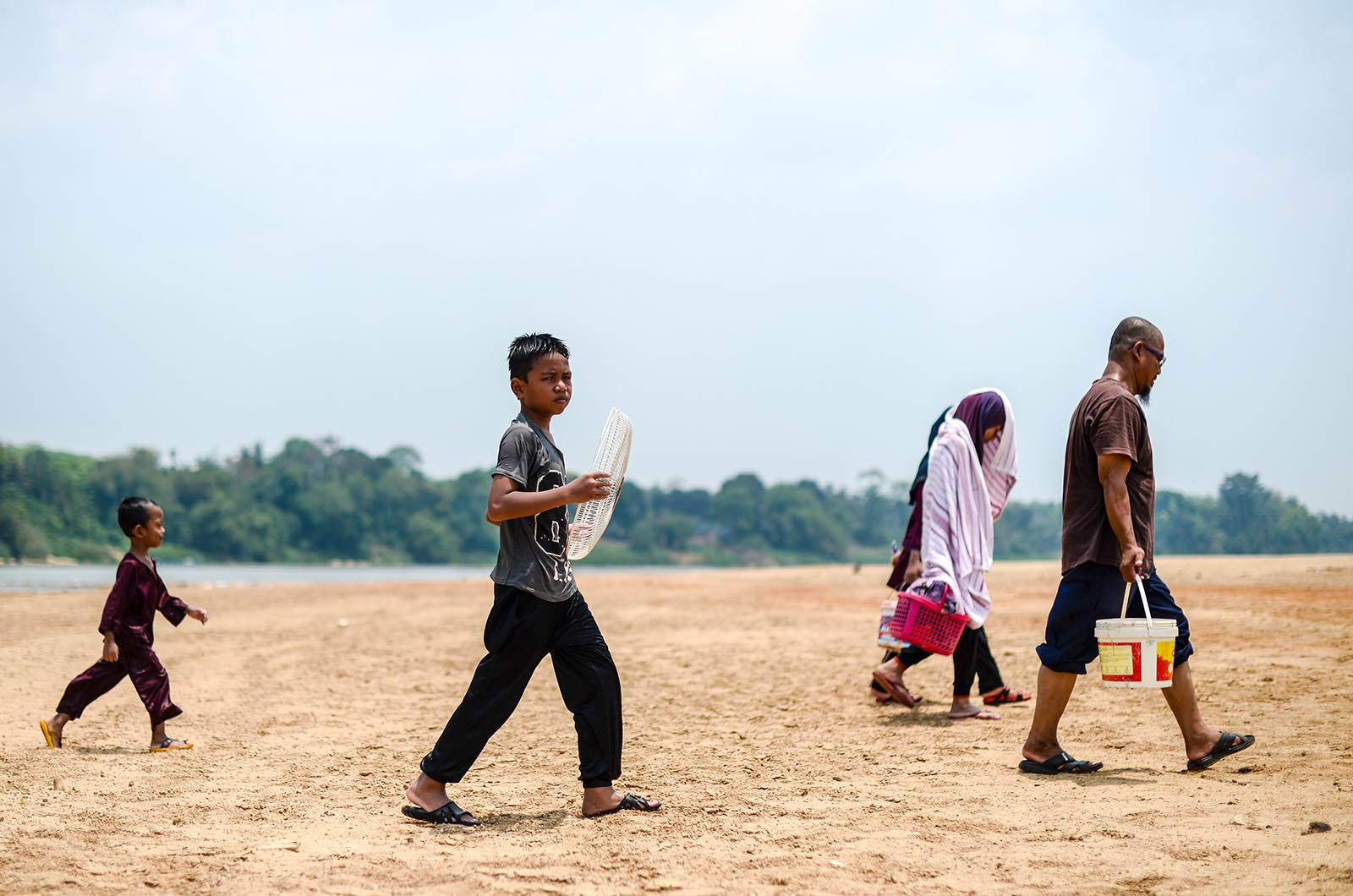The Rise of Green Islamic Bonds

Villagers walk along the dry banks of the Pahang river in Termerloh, outside Kuala Lumpur. Climate change is driving a growth in green bonds.
Photo: Mohd Rasfan/AFP/Getty Images
Infrastructure provisions are crucial for sustainable development, but despite that, there’s a huge gap in infrastructure funding and development. According to some estimates, about $1.7 trillion is needed for infrastructure spending every year through 2030 in East Asia and the Pacific, of which $200 billion is specifically devoted to climate change mitigation and adaptation. The current provisions of funding, on the other hand, stand at about $900 billion per annum.
Climate change is expected to hit developing countries the hardest. Its potential effects on temperatures, precipitation patterns, sea levels, and frequency of weather-related disasters pose risks for agriculture, food, and water supplies. Green bonds help raise awareness among investors and the financial community about how developing countries can act on climate change, and the World Bank is advising governments on the development of green bond markets based on our own experience of issuing such bonds.
Growth of Islamic Finance
The other prospect we are bringing into the picture is Islamic finance. This sector has the potential to play a crucial role in supporting the implementation of the Sustainable Development Goals. The growth of Islamic finance has been rapid at 10-12 percent annually over the past two decades. By 2015, the industry had surpassed $1.88 trillion in size. Islamic finance has emerged as an effective tool for financing development worldwide, including in non-Muslim countries, and may prove to be an important contributor toward realizing the SDGs.
In 2016, in Malaysia, the World Bank Group Global Knowledge and Research Hub joined a technical working group with Bank Negara Malaysia and the Securities Commission in support of the Malaysia Green Finance Program, leveraging our experience and expertise in green financing. The program aims to encourage investments in green or sustainable projects through the development of green Islamic finance markets, initially in Malaysia and, subsequently, in the ASEAN region.
A sukuk is a green Islamic bond—and it can be leveraged to promote inclusive growth, reduce inequality, and accelerate poverty reduction.
A year later, the program supported the launch of the first green “sukuk” in the world on June 27, 2017. The sukuk is a green Islamic bond in which the proceeds are used to fund a specific environmentally sustainable infrastructure project, such as the construction of renewable energy generation facility.
The Benefits of Green Sukuk
Green sukuk have the potential to further broaden this market as well as to help bridge the gap between the conventional and Islamic financial worlds. The sukuk should be attractive to conventional investors if they offer reasonable risk-adjusted returns and are properly marketed. They should be particularly attractive to environment-focused investors for two reasons:
- Sukuk provide investors with a high degree of certainty that their money will be used for a specific purpose. To comply with the underlying Sharia principles, the funds raised through the issue of a sukuk must be applied to investment in identifiable assets or ventures. Therefore, if a sukuk is structured to provide funds for a specified infrastructure project, such as a renewable energy project, there is little chance the investors’ money will be diverted and used for another purpose.
- Many more environment-focused investment products exist on the equity side of the capital markets than on the fixed-income side. Since most environmentally sustainable investors want to know precisely how their money will be used, bonds that are general obligations of an issuer have limited appeal unless all of the activities of the issuer meet the investor’s environmental standards. Sukuk, which are most similar to a conventional fixed income security, could help fill the fixed-income supply gap for environmental investors to the extent the proceeds of a sukuk are earmarked for a particular environmentally beneficial purpose.
Malaysia’s Leadership Role
Malaysia is the largest market for sustainable investing in Asia (excluding Japan) and has created an enabling environment for Islamic socially responsible investing and green finance. In addition to green sukuk, the country has introduced other steps to encourage the financing of sustainable and responsible investments, including the Bursa Malaysia Sustainability Reporting Guide and the environmental, social and governance index FTSE4Good.
In Malaysia, the World Bank’s Global Knowledge and Research Hub has been partnering with public and private institutions to develop modern and integrated financial services and markets. It is through this partnership that the new green Islamic finance initiative has been spearheaded and will contribute new and innovative financial products that can be used throughout the world. There is substantial potential in deploying Islamic and green finance instruments to promote inclusive growth, reduce inequality and accelerate poverty reduction.
A version of this article was first published here.


